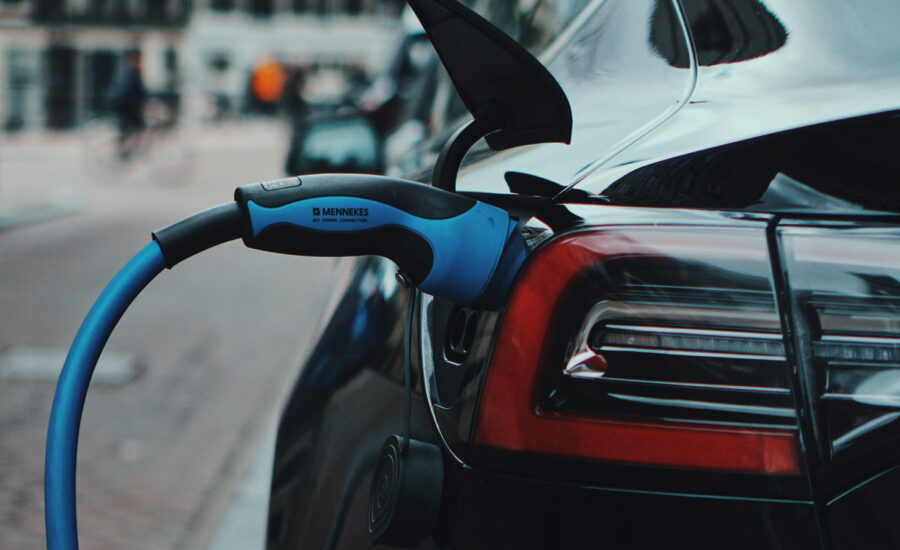How much does it cost to insure an electric car?
Insuring an EV isn’t all that different from insuring a gas-powered vehicle. Still, you’ll want to do your research before hitting the road.
Advertisement
Insuring an EV isn’t all that different from insuring a gas-powered vehicle. Still, you’ll want to do your research before hitting the road.

Electric vehicles (EVs) are quickly zipping into the hearts and driveways of motorists across Canada, so you might be asking yourself how much it costs to insure one. While EVs remain fairly expensive to purchase compared to traditional gasoline- or diesel-powered vehicles, they offer some unique advantages to drivers who can afford them: EVs require far less maintenance than fossil fuel vehicles, they can recharge at home and they’re even less prone to rolling over during crashes.
Despite these differences, insuring an EV isn’t radically different from insuring a fossil fuel vehicle, but there are some special considerations drivers should be aware of before going electric.
EV auto insurance isn’t any different than insurance for a vehicle with an internal combustion engine. Both are subject to the same mandatory insurance coverages.
In every Canadian province and territory, auto insurance policies include third-party liability to cover potential lawsuits against you for injuring or killing someone in a crash, as well as uninsured auto coverage to pay for damage caused by an uninsured driver. In every part of Canada except Newfoundland and Labrador, auto insurance policies must also include accident benefits to cover the costs of lost income, rehabilitation, healthcare and funeral expenses stemming from an accident. (Read our guide to getting the best car insurance in Canada.)
Collision and comprehensive coverage are mandatory in Saskatchewan and Manitoba, and they’re good add-ons no matter where you live. The first covers the cost of repairing or replacing your vehicle after a collision, and the second covers you for damage caused by a break-in, fire or theft. EV owners might want to consider coverage for loss of vehicle use as well—it covers transportation costs if you are in an accident and your vehicle is temporarily in the shop.
Insurance companies use something called the Canadian Loss Experience Automobile Rating (CLEAR) system to calculate how risky a particular vehicle model might be to insure. CLEAR rates every aspect of a vehicle model, from its anti-lock braking system to the likelihood of it being stolen. A CLEAR score of 100 represents the average; lower and higher scores represent less and more claims risk, respectively. The vehicle’s scores are then reflected in the driver’s insurance premiums.
So far, few EV models have been rated using the CLEAR system. Rob de Pruis, director of consumer and industry relations at the Insurance Bureau of Canada, says there isn’t enough data to know whether EVs are more or less expensive to insure than gas-powered vehicles. But EVs might have a few strikes against them.
For starters, EVs are often more expensive than equivalent fossil fuel-powered cars, making them more costly to replace. A vehicle’s price tag alone can drive up insurance premiums. Potential repair costs have a similar impact. The relative newness of EVs means that many repair shops aren’t equipped to fix electric motors or power banks (which serve as portable backup batteries for longer trips). “[These parts] do have a life expectancy, just like other components on your vehicle,” de Pruis says. “If they were damaged in a collision, they can be quite expensive to repair.”
“Generally speaking, the fuel source of your vehicle doesn’t lead to an automatic increase or decrease in premiums,” de Pruis says.
Insurers put more weight on the risks and costs associated with a specific model. Case in point: Some sporty gasoline-fuelled Mercedes-Benz four-door Coupe models have CLEAR scores in the 200s or even 300s, which tends to make them more expensive to insure.
The few EVs that do show up in CLEAR data are often riskier to insure than their equivalent gas-guzzlers—meaning drivers will likely pay higher premiums. But that isn’t always the case.
Take the 2018 Nissan LEAF, a compact four-door sedan EV. According to CLEAR data, it scores an above-average 127 on collision claims and 179 on direct compensation property damage, but it has an impressive overall score of 47 when all claims including theft are considered. By comparison, a 2018 Nissan Altima (also a four-door sedan) scores 206 on collision claims, 257 on direct compensation property damage and 159 on all claims combined. Meanwhile, a 2018 Tesla Model 3, one of Canada’s most popular EVs, scores 179 on collision claims, an even 100 when all claims including theft are included, and a whopping 341 on direct compensation property damage claims.
Shopping around for auto insurance quotes is a tried-and-true strategy for any driver, and insuring an EV is no exception. De Pruis says that the private insurance markets of Ontario, Alberta and Atlantic Canada offer a lot of competition—and therefore, choice—for drivers.
Another way to score discounts on car insurance is to consider bundling your home and auto insurance policies. “You can realize substantial savings,” de Pruis says. “Increasing your deductible can help as well.”
EV owners also have a way of saving money that most car owners don’t—government rebates. The Canadian government provides rebates of up to $5,000 for the purchase of eligible electric cars, and some provinces, like B.C., and even some insurance companies give discounts to new EV drivers. “It’s somewhere between 5 and 15 percent, depending on the company,” de Pruis says.
With 16 fully electric battery-powered cars and dozens of hybrids currently on the market, EVs are quickly becoming more visible on Canadian roads—and drivers shouldn’t be worried about insuring one. You’re not likely to get a discount on your premiums just for driving one, but doing your research can help you find an EV that matches your driving needs and insurance budget.
Share this article Share on Facebook Share on Twitter Share on Linkedin Share on Reddit Share on Email